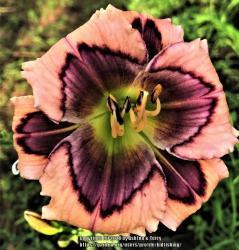admmad said:@beenthere
OK, diploids do apparently, on average, have strong negative effects of inbreeding. In crosses that you consider are significant inbreeding you can alleviate the potential problems by producing many more seeds than usual and by culling more heavily for characteristics that are "closer" to "fitness". Those would be pod fertility [percentage of flowers that produce pods with seeds (when pollinated with fertile pollen)], average number of seeds in those pods); pollen fertility (percentage of flowers that set pods (of known to be fertile pod parents); rate of fan growth; rate of increase; winter hardiness; robustness (for example percentage of small fans that survive being transplanted or that survive their first winter, etc.).
It may require you to be more ruthless about the number of seedlings that end in the compost pile, but you should be able to select for fitter individuals even in crosses that on average produce less fit seedlings - as long as enough seedlings are grown.

admmad said:@edgar
One of the catch-22s when hybridizing with 'Stella de Oro' is that it is often naturally pollinated by insects. So to be certain that the pollen put on the flowers by hand by the hybridizer is the actual pollen that sets the seeds insects have to be prevented from visiting the flowers. Sorry, have to use 'safe hybridizing techniques' as written about in the Daylily Journal when hand pollinating Stella.
'Stella de Oro' pollen on 'Stella de Oro' flowers is expected to only produce various shades of yellow flowered seedlings. According to known genetics it cannot produce red-flowered seedlings - those can only be produced by insect pollinations with pollen from red-flowered daylilies. It is also probably not possible to produce orange-flowered seedlings from hand pollinated self-pollinations that were protected from insect visits. Purple flowered and eyed seedlings are not genetically possible from self-pollinations of 'Stella de Oro' either - only from bee pollinations that beat or mixed with the hybridizer's hand pollinations.
I have crossed 'Stella' with other cultivars and the seedlings rebloom. I have read in the past that it is difficult to get seedlings from 'Stella' that rebloom but I have not had that problem - as long as the seedlings are grown well.